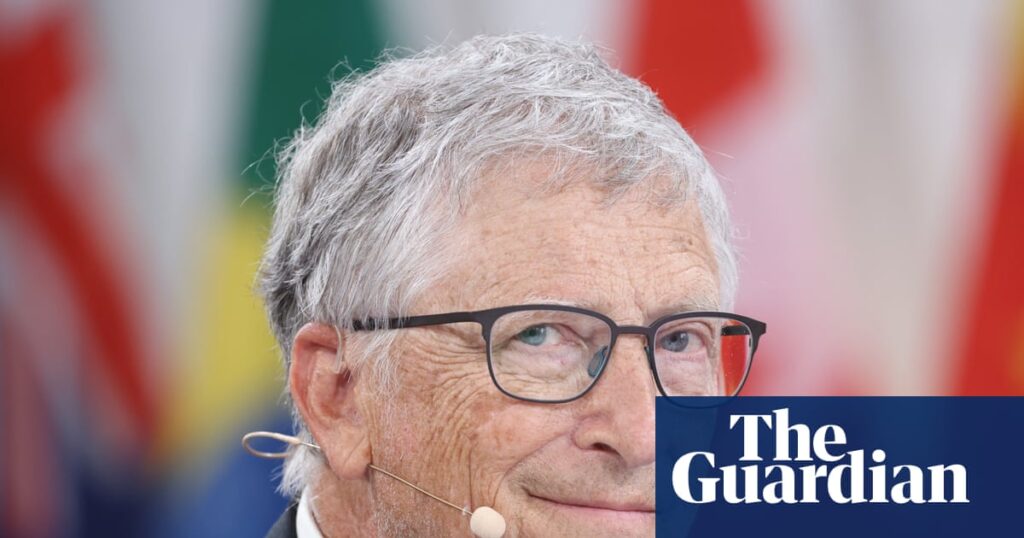
Bill Gates has called for a “strategic pivot” in the global effort against climate change, suggesting that the world should shift its focus from solely limiting rising temperatures to addressing broader issues such as disease and poverty. Writing on his Gates Notes website, the billionaire Microsoft co-founder criticized what he termed a “doomsday view of climate change,” which he believes places excessive emphasis on short-term emissions targets.
Gates’s comments arrive in the wake of a United Nations report indicating that humanity has failed to meet the target of limiting global warming to 1.5 degrees Celsius. The UN Secretary-General, António Guterres, warned of the “devastating consequences” that could follow this failure.
Gates’s Vision for Climate Action
In his memo, Gates asserted, “Although climate change will have serious consequences—particularly for people in the poorest countries—it will not lead to humanity’s demise. People will be able to live and thrive in most places on Earth for the foreseeable future.” He emphasized the upcoming Cop30 climate summit in Belém, Brazil, as an opportunity to refocus on improving lives rather than just emissions and temperature metrics.
“Although climate change will hurt poor people more than anyone else, for the vast majority of them it will not be the only or even the biggest threat to their lives and welfare,” Gates wrote. “The biggest problems are poverty and disease, just as they always have been. Understanding this will let us focus our limited resources on interventions that will have the greatest impact for the most vulnerable people.”
Contrasting Views on Climate Strategy
Gates’s perspective contrasts sharply with that of UN Secretary-General António Guterres, who recently told The Guardian and Amazon-based news organization Sumaúma that it was time to “recognize our failure” in tackling the climate crisis. Guterres stated, “The truth is that we have failed to avoid an overshooting above 1.5C in the next few years. And that going above 1.5C has devastating consequences.”
“It is absolutely indispensable to change course in order to make sure that the overshoot is as short as possible and as low in intensity as possible to avoid tipping points like the Amazon. We don’t want to see the Amazon as a savannah. But that is a real risk if we don’t change course and if we don’t make a dramatic decrease of emissions as soon as possible.” — António Guterres
Historical Context and Expert Opinions
The debate over climate strategy is not new. Historically, the focus has been on reducing emissions as a primary method of combating climate change. However, Gates’s call to broaden the scope of climate action echoes a growing sentiment among some experts who argue that addressing socio-economic factors is equally critical.
Dr. Lisa Fernandez, a climate policy analyst, noted, “Gates’s approach highlights an important aspect of climate resilience. By addressing poverty and disease, we can build stronger communities that are better equipped to handle climate impacts.”
Meanwhile, climate scientists warn that without aggressive emissions reductions, the world risks reaching critical environmental tipping points. “The science is clear; we must reduce emissions to mitigate the worst impacts of climate change,” said Dr. Michael O’Connor, a leading climatologist.
Implications and Future Directions
The discourse surrounding climate change strategy is likely to intensify as the Cop30 summit approaches. Gates’s comments may influence discussions, encouraging leaders to consider a more holistic approach that includes economic and health interventions.
As the world grapples with the dual challenges of climate change and socio-economic inequality, the path forward may require a blend of strategies. Balancing immediate environmental needs with long-term human development goals could become a central theme in future climate policies.
Ultimately, the conversation initiated by Gates underscores the complexity of the climate crisis and the necessity for innovative solutions that transcend traditional environmental boundaries. As global leaders convene, the hope is that a more inclusive and comprehensive strategy will emerge, one that addresses both the symptoms and root causes of vulnerability in a changing world.





